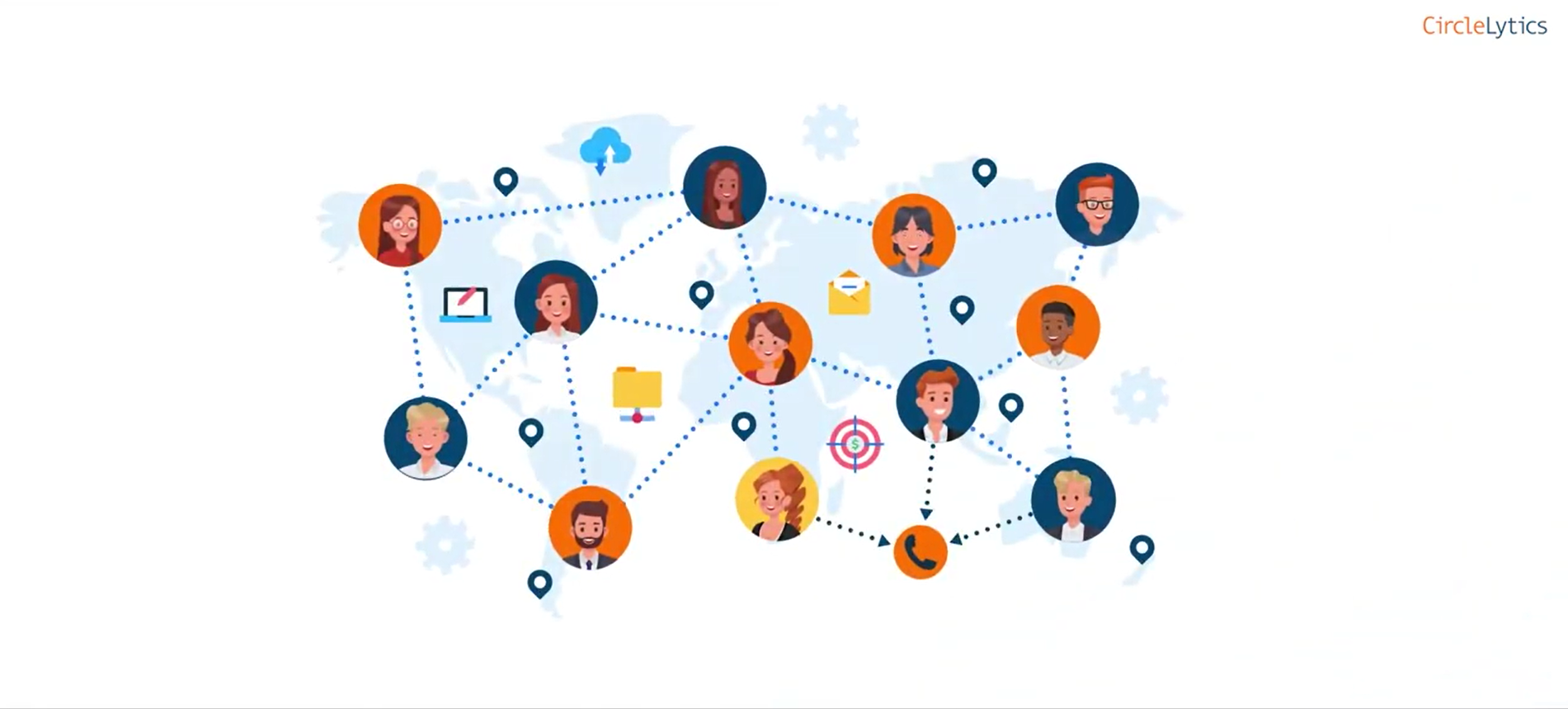Quickly, easily and safely consult all employees on important changes, regardless of the department they work in. Create broad support and high employee engagement by actively asking for their opinion and build on the knowledge, experience and ideas of all employees simultaneously for every opinion and initiative.
“Based on the results of the dialogues, management and the Works Council can better assess the impact of the choices that are made, which strengthens decision-making and involvement.” (Royal HaskoningDHV)
Increase visibility, underpin advice
The online dialogue ensures that you can ask every employee for their personal opinion or viewpoint. Genuine consultation in accordance with WOR Section 17(1). You can now reach every employee who needs to be reached when substantiating your initiative or advice. They will reveal what they are truly thinking. By posing questions and propositions to employees, you ensure that they feel involved and that you are visible as a council. You show that you are open to the opinions of your colleagues. That is what they want to see, and that is what management wants to see. It helps management to make informed decisions and take you seriously.
Increase speed, discussion partner for management
The dialogue ensures that you know what is going on because you literally ask about it. You ask open questions that matter, and present statements. In two anonymous rounds, employees respond to this and then to each other. Both for initiatives (Article 23) and opinions (Article 25). In that 2nd round, they listen to each other’s opinion and point of view. They show their support by giving a score and telling you why, anonymously. This is how you immediately know what the group supports most. You understand the ‘why’ and you can immediately use the results, often after a week, in consultation with the board, and with substantiation.
“Management and HR were involved and very satisfied!” says Johan Berends of Metamorfase about the Works Council dialogue with Toyota, where he was commissioned to conduct an initiation project including a Works Council dialogue with employees.
Representation: “on behalf of the employees”
For a survey, you quickly need 100s of employees if your organization has, say, 1,000 employees. Otherwise, your story and substantiation towards management are not valid, statistically speaking. Listening to people is interesting, but it is not a valid basis for a good conversation. That is called anecdotal evidence: the stories of a few people. The CircleLytics tool includes a calculation module that allows you to easily calculate how many employees you need to consult to reliably speak on their behalf, so that you can reliably substantiate your advice/initiative to the board. The fact that you have been elected does not mean that you know what all employees think about certain topics. That is what the WOR (Works Council Act) is meant for: to be able to consult employees and offer them a say (Section 17(1)), with costs being reimbursed (Section 22(1)). Article 25(3) is also important in this respect: your advice must be substantiated with insight into the consequences for employees. What do they support? What don’t they support? Why? Why not?
“The dialogue does not only show the story or thoughts of people; it also shows which thoughts are supported by several people. We base our advice to management on facts and insights. Moreover, it ensures speed in the process. (Central Works Council of Unilever)
Challenging and simple. Instead of surveys, we enter into dialogues.
Employees are not in the mood for surveys, and certainly not if they have to download something. Organizations struggle with this. Topics are often too sensitive and too important for a Yes/No or a series of multiple-choice questions. Modern employee participation requires you to consult them and ask their opinion. The unique second round of the dialogue ensures that they react to the opinions of others and rank them. This immediately gives you a substantiated Top 5 of what is most supported and why.
“Employees are involved and allowed to share their own suggestion and knowledge, instead of ‘ticking off’ the traditional survey that made people ‘numb’.” (PostNL Works Council)
Self-service or with a little help
We have all the important questions ready for you. Open questions and propositions that you can use immediately and that are often already being used by other works councils. The tool is very easy to use, with clear buttons, input fields and settings. You can always reach us – on request – via live chat, e-mail or telephone to create the questions together or for you. If your initiative or advice is more complex, CircleLytics can be used by your advisor, or we have partners who are works council advisors and are familiar with the tool.
For whom?
For employee participation, works councils, central works councils, committees. Even if you are currently using surveys, polls, video conferences and other forms of work, request the demo. You will be surprised at the ease, the impact and the difference compared to other working methods.
Curious? Let’s get started!
Good, because that’s where it starts: ambition, wanting to know why, wanting to discover how to improve. We would like to let you experience for yourself what we are enthusiastic about and what other organizations such as Gall & Gall, Unilever, Reclassering NL, SpaarneGasthuis, Inspectie voor Gezondheidszorg & Jeugd, RIVM achieve with their employees. Request our demo free of charge. It will also answer questions such as: do we do this once or multiple times? For the entire organization or teams or departments? Who designs the questions? For advice or also to take initiatives? What do the results look like?
Request your demo or email/call Maurik Dippel, at +31(0)611 78 80 47.


